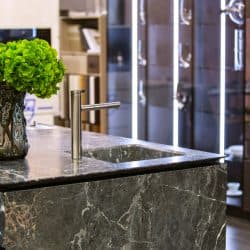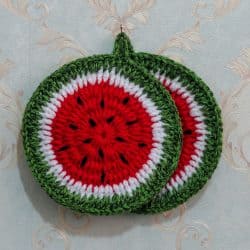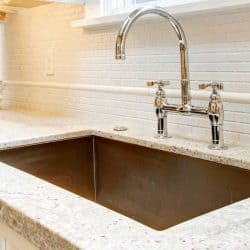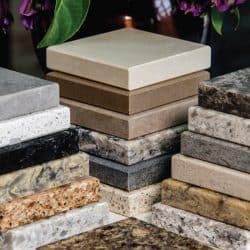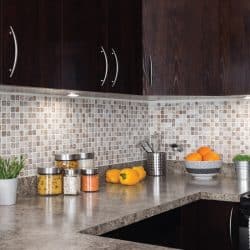Kitchens are one of the most frequented spaces in a home. This also means that there's lots more opportunity for germs to be active and present. Figuring out when it's time to clean your kitchen surfaces can prove difficult. Are you trying to form a cleaning schedule for your kitchen counters but don't know often is enough? Well, we've done some digging and have the answer for you. Let's get into it.
It's usually best to disinfect your kitchen counters two to three times per week. Depending on how often you use your kitchen and what you put on your counters, you might even need to sanitize them after each use.
Of course, this won't be the same for everyone, but in general, try to give your kitchen counters a deep clean every few days.
As we begin, we will cover all things cleaning. Whether you love to cook and prepare meals on your kitchen counters or barely make your way onto them, we're here to help. With that said, let's get right into this topic!

Do You Have To Disinfect Kitchen Counters?
Although it can be annoying, yes, it is essential to disinfect your kitchen counters. Even if you don't cook often, bacteria can live and grow on your kitchen surfaces, including your counters.
Depending on how you use your kitchen, your counters can come in contact with packages, raw food, harmful chemicals, and other unclean items, which makes disinfecting them all the more necessary.
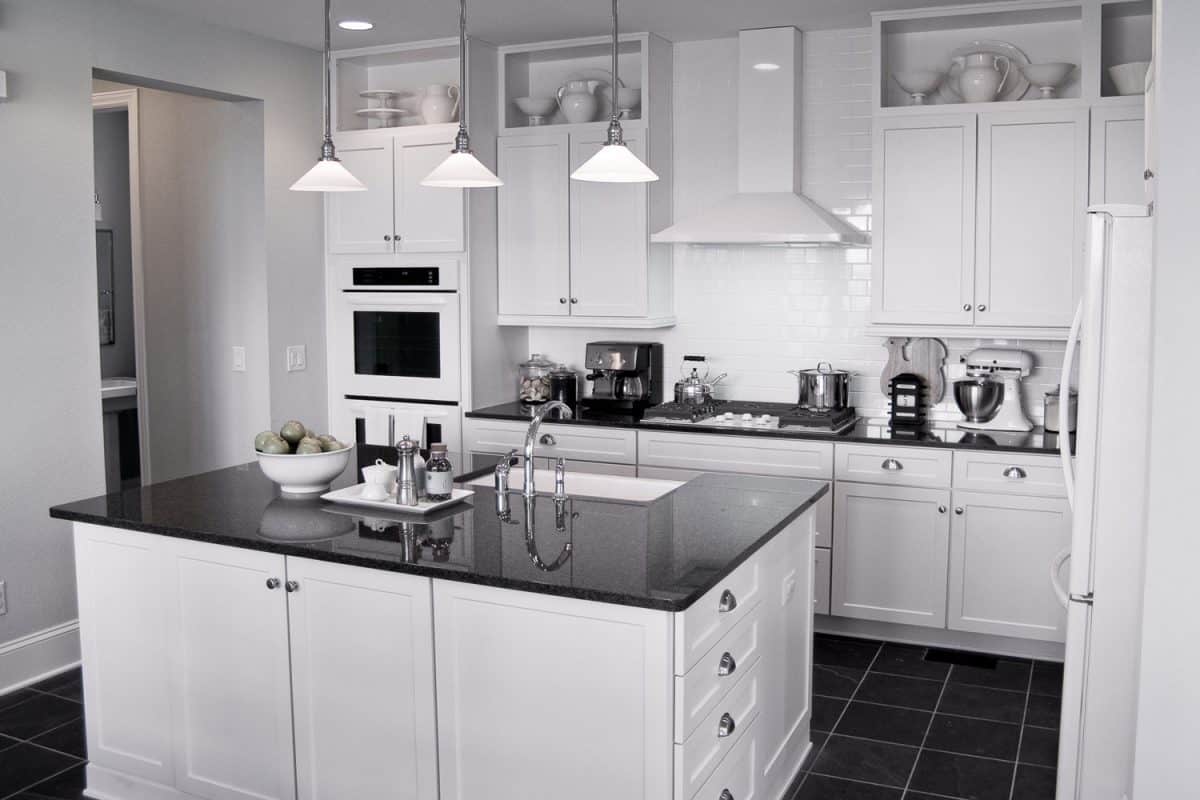
What Is The Best Disinfectant For Countertops
You'll want to use highly-concentrated alcohol disinfectant for your kitchen counters. According to Granite Selection, using a product with 70% isopropyl alcohol is a sure way to kill any lingering germs and won't harm granite surfaces.
They also mention how the most effective alcohol concentration for killing bacteria is between 60% to 90%, so keep that in mind. Of course, you can also use a simple anti-bacterial wipe or spray like Clorox or Lysol on your counters to disinfect them, so you've got options.
Alliance Chemical Isopropyl Alcohol Spray
This multi-surface disinfectant is USP-grade, has 91% isopropyl alcohol, is unscented, and comes in a 32-ounce spray bottle.
Check out this spray on Amazon here.
Lysol Disinfectant Spray
This disinfectant spray kills 99.9% of viruses and bacteria, is bleach-free, works on non-porous surfaces, and has a lemon scent.
Follow this link to see it on Amazon here.
How Do You Disinfect Kitchen Countertops?
For those wanting to give their kitchen counters a deep clean, this isn't too complicated. To start, you want to get a cleaner that promises to kill bacteria and won't damage your countertops.
The CDC recommends using either diluted bleach or alcohol to clean your counters, so try to stick with one of those options. After finding a disinfectant, you want to spray or wipe down your counters, allowing them to air dry.
Doing this will give your product time to kill any bacteria and shouldn't leave a residue on your kitchen surfaces.
Is Clorox Safe For Countertops?
It's fine to use Clorox to disinfect your kitchen counters. According to their website, Clorox guarantees that their regular bleach is safe to use on sealed granite countertops but shouldn't be used at full strength.
In general, as long as your countertops are sealed, there shouldn't be an issue using diluted bleach or alcohol on them, but it's best to check your product's instructions beforehand.
How Do You Make A Counter Disinfectant?
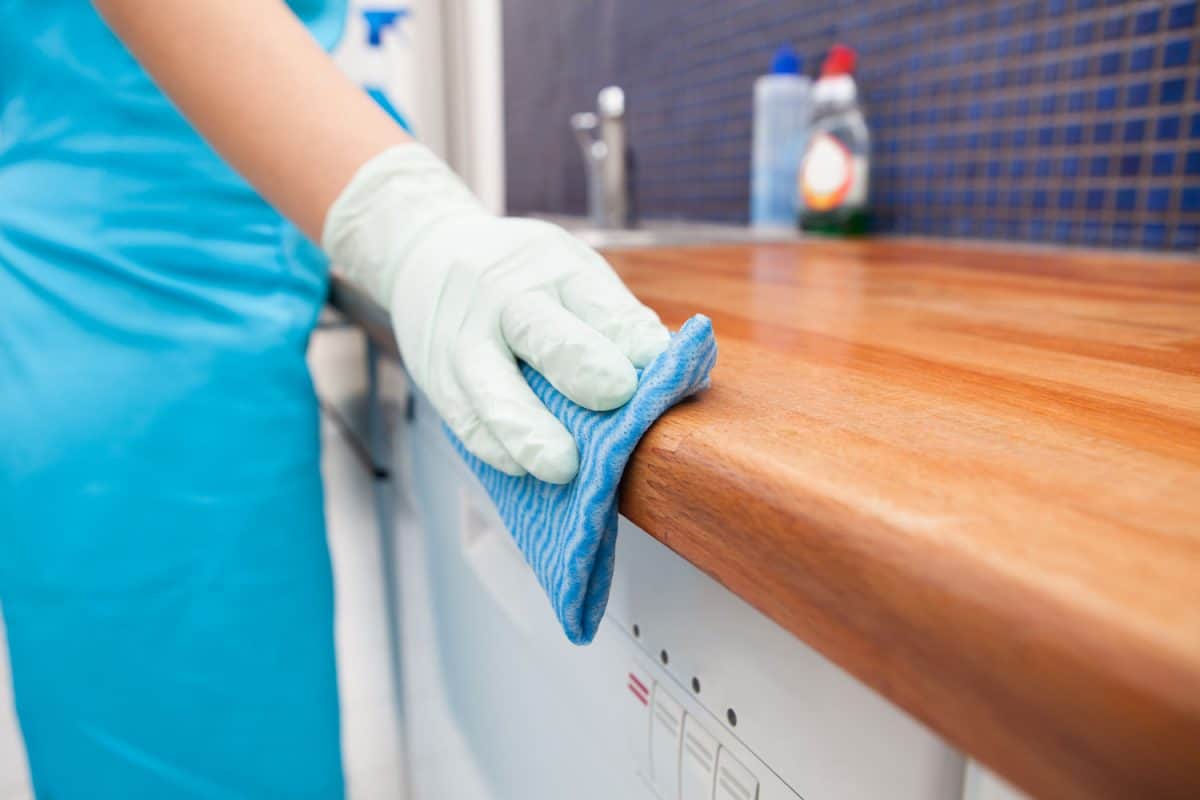
For anyone wanting to make their own counter disinfectant, this is pretty simple. To start, you'll need the following:
- 1 1/4 cups of water
- 1/4 cup of white vinegar
- 1/4 cup (60% + alcohol content) of either vodka, Everclear, or rubbing alcohol
- 10-15 drops of essential oil (peppermint, lemon, and lavender work best)
- A glass or plastic spray bottle
Once you have these ingredients/items, you want to mix them together, and you're ready to get sanitizing. One thing to note, if you have granite or marble counters, avoid using vinegar on them because it can strip away their natural finish/color.
Plant Therapy Lavender Essential Oil
This lavender essential oil is undiluted, therapy-grade, 100% pure, and comes in two bottle sizes.
Click this link to view it on Amazon here.
Full Circle Service 16-Ounce Refillable Glass Spray Bottle
This glass spray bottle has a silicone base, holds 16 fluid ounces, comes in two colors, and has a wide-neck design for easy filling.
See this spray bottle on Amazon here.
DIY Disinfectant Tutorial
Here is a video tutorial on making your own disinfecting spray from Clean Mama's official YouTube channel. This video dives into the best way to naturally sanitize your counters and gives helpful tips on what ingredients work best on various kitchen surfaces.
Is Rubbing Alcohol Safe For Granite Countertops?
Rubbing alcohol will usually be very safe to use if you have granite counters. Alcohol has a neutral pH, which means it likely won't strip away or damage granite and stone countertops.
Well-sealed granite counters handle alcohol well and won't be as susceptible to bacteria, which is something to note.
What Should You Not Clean Granite Countertops With?
When it comes to what products you shouldn't use on granite countertops, there are plenty. A few common cleaners to avoid are:
- Ammonia
- Vinegar
- Bleach
- Tile/bathroom cleaners
- Citrus cleaners
- Glass cleaners
- Hydrogen peroxide
Granite, specifically, can be sensitive to harsh/acidic products, so it's best to use cleaners with neutral or lower pHs.
Does Windex Disinfect Countertops?
Depending on which Windex product you have, you might be able to use it as a disinfectant. Although Windex's original glass cleaner doesn't promise to kill bacteria, their multi-surface cleaning spray kills 99.9% of germs, including viruses and bacteria.
That said, Windex isn't as strong as alcohol or bleach but does make an excellent everyday household cleaner.
Windex Multi-Surface Cleaner and Disinfectant Spray
This multi-surface spray kills 99.9% of bacteria and viruses, works on sealed granite, marble, and Formica countertops, won't streak, and comes in a 23-ounce bottle.
Check out this disinfectant on Amazon here.
Is Windex Safe For Quartz Countertops?
Although Windex won't necessarily damage a quartz countertop, it can wear it down. Like many household cleaners, Windex, in moderation, will be okay on quartz, although we don't recommend it for everyday use.
According to Keystone Granite Oregon, Windex works well for heavy/dried-on stains on quartz counters and is suitable for occasional deep cleaning. That said, it's best to stick to a warm soapy sponge for wiping down your quartz countertops and using Windex when it's time for a deep clean.
Should I Sanitize My Kitchen Every Day?
It is always a good idea to form a habit of wiping down busy surfaces in your kitchen daily. Although it isn't necessary to deep clean your kitchen every day, we recommend using a sanitizing product as often as possible.
You never know what bacteria/viruses are lingering on your home's surfaces, so disinfecting them can't hurt. Sanitizing kitchen surfaces regularly also prevents cross-contamination when you're cooking, which will keep your food safe to eat.
Are There Natural Disinfectants For Kitchen Counters?
For those not wanting to use harsh chemicals in their kitchen, we hear you. Although chemicals kill bacteria the best, you can also use natural alternatives like white vinegar, alcohol, and hydrogen peroxide.
Of these three, we recommend using highly-concentrated alcohol to disinfect countertops, although white vinegar and hydrogen peroxide will also get the job done. Regardless, remember to be careful on your countertops if they are stone/porous, and try to dilute your cleaner before using it.
To Wrap It Up
Whether you try to clean your kitchen daily or wait closer to a week, keeping your counters sanitized is essential. From what we found, it's best to disinfect kitchen counters every two to three days, or at least a few times per week.
When it comes to what products work the best, we recommend highly concentrated isopropyl alcohol or a cleaner with bleach included for your counters. If you have granite or stone countertops, it's best to use milder disinfectants like rubbing alcohol so you don't damage them.
Regardless, try to disinfect your kitchen surfaces every few days, and don't be afraid to make your own DIY cleaner from scratch.
Need more guidance for your kitchen? Check out these helpful related kitchen posts below!
How To Get Rid Of New Kitchen Cabinet Smell - 5 Methods To Try
What Should Seems In A Granite Countertop Look Like?
How To Monitor Storage Temperatures In Your Kitchen






![An empty kitchen with a granite island countertop with wooden flooring, How To Clean Granite Countertops? [3 Steps]](https://kitchenseer.com/wp-content/uploads/2020/10/An-empty-kitchen-with-a-granite-island-countertop-with-wooden-flooring-250x250.jpg)
